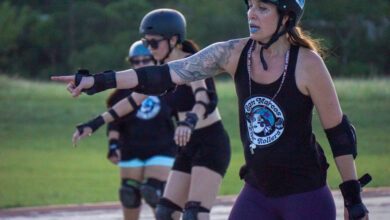Series: “The Silent Victims Of Family Violence”
Recently, Texas Council on Family Violence published their annual “Honoring Texas Women” 2016 report documenting the stories of the 146 women in Texas killed by their intimate partners.
By Melissa G. Rodriguez, HCWC Director of Community Partnerships
The following article is part four of a five-week series focusing on raising awareness about domestic violence. October is Domestic Violence Awareness month, and we hope to educate our community on this very serious issue. One in three women will experience domestic violence in their lifetime. Locally, the Hays-Caldwell Women’s Center has been serving victims of domestic and dating violence, sexual assault and child abuse since 1978. Last year, HCWC served 1,872 victims of abuse (face-to-face) from Hays and Caldwell Counties. 1,050 of those were victims of domestic violence.
Recently, Texas Council on Family Violence published their annual “Honoring Texas Women” 2016 report documenting the stories of the 146 women in Texas killed by their intimate partners.
The report includes ONE woman from our two county service area in Kyle and is listed as follows: “Erin Wright, 39 KYLE | MARCH 26, 2016 James Keen, 49, shot and killed his girlfriend Erin in the front yard of their home. Three of Erin’s children were inside the home; they fled to a neighbor’s house for help. Authorities arrested and charged Keen with murder. Keen has a history of family violence. Erin is survived by four children.”
Her children are among the thousands of children who live in homes where family violence has robbed them from what most of us take for granted – their sense of safety, comfort and nurturing in their own homes. These are all things they are not only entitled to but should cause the rest of us to take pause and reflect on what the loss of this basic need will ultimately lead to.
Children who live in homes where family violence is part of their everyday lives have higher risks of many unintended consequences such as behavior problems at school, truancy, different forms of addiction, running away from home, as well as mental health issues such as depression, anxiety and PTSD, among others.
They live in fear not only for themselves but for their parent; they fear for the victim parent’s safety but also fear the abusive parent getting in trouble. Children feel torn between both parents often blaming themselves and bearing the responsibility of wanting to keep their families together.
Who wouldn’t want their family to heal and remain intact? The stress of living in this environment can also lead to physical and mental health issues that often remain undiagnosed and untreated. There are many adults who grew up in these homes who now list a plethora of health and mental health issues as a result of having grown up in these complicated situations.
In general, society’s response in trying to deal with these situations has been highly misguided, often blaming the victim for staying in the abusive home, and while the safety of children is paramount, the solution isn’t always an easy one. Victims are much more likely to be murdered while leaving or after having left their abuser.
Many stay for the children, feeling that two parents are better than one but many leave because of the children fearing their safety. And while we could explore further explanations, there is only one that rarely gets mentioned but is truly the only way to end violence: the abuser is who is making the CHOICE to abuse so only they can make the choice to NOT abuse.
The responsibility lays with that person and as a community, we must shift that accountability to that individual and stop blaming victims.
If you or someone you know is living in an abusive home, we are here to help. The answer for many is early intervention and support for survivors of family violence and their children. HCWC provides assistance to survivors (inclusive of all genders) by offering individual counseling, personal and/or legal advocacy, emergency shelter (for those in need of safe housing) and support groups for themselves and also for their children.
All of our programs have trained children’s counselors who work with children by providing traditional talk therapy or play therapy for children who need more specialized care. For more information about services, please call HCWC at (512) 396-3404 or visit www.hcwc.org . You can also visit our educational website www.StopTheHurt.org for more education on abuse issues and resources.






